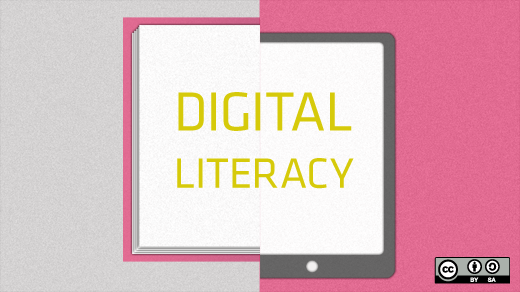My husband and I are librarians. We were talking recently about library training, the library profession, the open source movement, and how open source digital content is being distributed today in public libraries. We were struck by the way that open source thinking has infiltrated many areas—but not yet the profession or institution of librarians.
Librarians go to library school to learn how about how to process information, both print and digital. We learn how to search and retrieve information and how to research, catalog, and reference information. We learn how to evaluate sources for accuracy, credibility, scope, objectivity, clarity, and readership. We learn about intellectual freedom, copyright issues, library procedures and management, including integrated library system software. We learn about digital information and content. We may leave with a degree in library science or information science. But, in the course of our library education, we learn little to nothing about the differences between proprietary products and open source ones--there are few open source advocates in library school or in the profession.
How have libraries and library schools become a stumbling block for the open source movement? Open source could--and should--be part of the local library, an experience that revolves around making information freely available and accessible to all.
Digital information has drastically changed the library profession. Print media is dead. But libraries remain physical repositories for printed books. They are not seen as distributors of digital information. Google is. Like Google, libraries created cataloging systems to organize and control physical library collections. Google does something similar with their retrieval system and the way they retrieve information.
Librarians are usually strong advocates for intellectual freedom, but have been muted on differences between proprietary and open source, non-commercial digital information. Yet libraries and library schools are natural allies of the open source way. They should have an important role in making digital spaces and content freely available and accessible to all. A library’s core function is to advance society through learning and education. The education of children is essential to a nation’s future, but how many libraries and library schools are promoting digital literacy skills and teaching about the differences between proprietary and open source and commercial-free digital information?
Libraries and library schools need to take an active role in addressing how different the world of knowledge and digital information is today, and how it will continue to evolve in the future. Mandatory reference courses at library schools should include open source or commercial-free sources besides Wikipedia. Libraries and library schools should be contributing to national efforts to bring awareness to open source communities. They should be turning to open source Integrated Library Systems, hardware, software, books, databases, videos, audio, games, and more—all with the aim to become digital information centers for the 21st century.
Unfortunately, many library users are not aware of open source, public domain, or commercial-free alternatives already in existence, because such information is not freely available and accessible through public libraries. If library schools are not integrating open source resources into their courses and curricula, then this is hardly surprising. This is a situation that needs to drastically change.
Open source will only increase the number of library resources and services, as long as knowledge about these open source alternatives is freely available and accessible and librarians work to disseminate such knowledge to the public. In order for this to happen, we have to overcome fears about what such easily disseminated knowledge could mean for for-profit publishing.
It’s happened before. Critics once feared that public libraries would decrease book sales. Instead, as libraries grew in popularity, book sales soared. Copyrighted books ensured authors or creators retained intellectual property rights over their work. For over 100 years, public libraries have fought for the free dissemination of copyrighted books for all--not just for the wealthy or those who could physically access a public library.
Public libraries have a moral obligation and duty to serve the public’s best interests. But these public interests are compromised if open resources are not being disseminated freely and widely. Intellectual freedom sacrificed as a result.
The public also has a moral obligation and duty to speak up. Contact your library about open source. Talk to them about substituting or offering open resources. Tell them about the cost benefits and the ability to help more people and provide more resources. Emphasize that these assets are additions and improvements, rather than replacement of all proprietary products. Be global digital citizens and help librarians become keepers of the digital future, offering modern choices that will help sustain the profession--rather than keepers of a dwindling printed past.
The speed of innovation and growth of digital information is advancing faster than before. If the world’s digital information is doubling every two years and Google expects Internet users to triple by 2014, this should be a clarion call to the library profession, library schools, and the public to act.







7 Comments